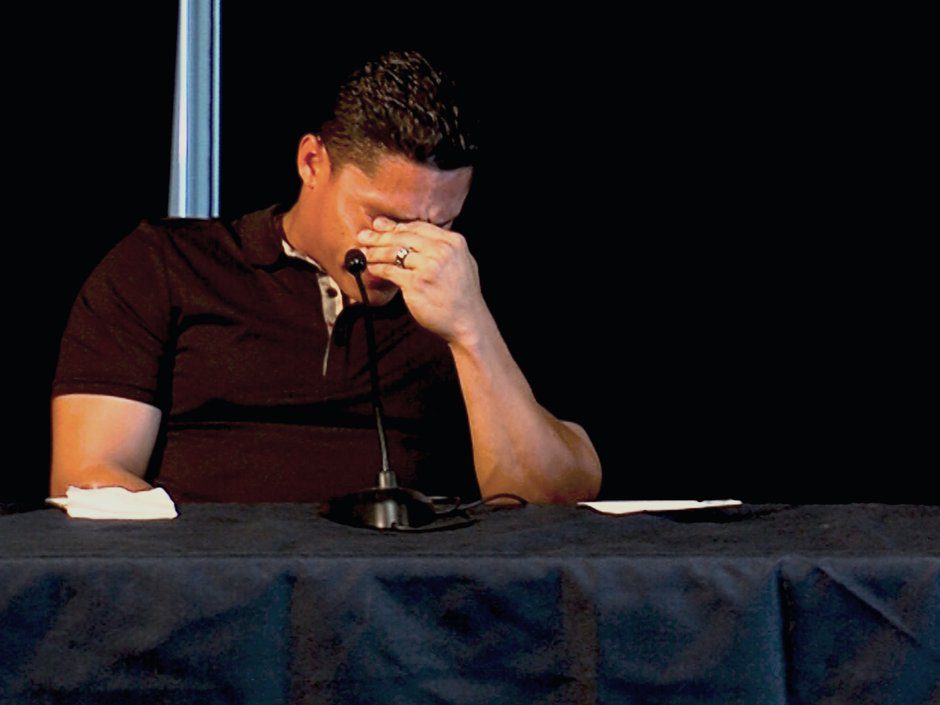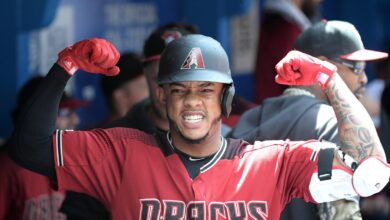


The recent acquisition of Alex Rios by the Texas Rangers shows that it’s still possible to make deals after the trade deadline, at least if both negotiating parties are highly motivated. In this case, the Chicago White Sox General Manager Rick Hawn appeared to be under orders to shed salary so the organization could refurbish a weak farm system. Perhaps somebody told Chicago owner Jerry Reinsdorf what the Cubs were doing on the north side of town.
As for the Rangers, team president and GM Jon Daniels was desperate to replace the offense provided by suspended outfielder Nelson Cruz. It was clear that Rios was always on the Ranger radar, but Chicago and Texas were reportedly “not even close” to pulling the trigger prior to August 1. The problem was that Rios, 32, was owed $4 million yet this year and $13.5 million in 2014, the final year of his contract. And the Rangers were understandably unwilling to take on that kind of money, especially after landing Matt Garza. But when the hammer came down on Cruz, who will be a free agent after this year, the possible transaction remained alive. So, when the White Sox dangled Rios on the waiver wire and there were no takers, Texas took the bait.
Rios is thrilled to play with a contender. And Avisail Garcia, who the Sox received indirectly in the Jake Peavy trade, would now get a chance to play. Even if Cruz does return to play in the postseason, the Rangers will still have Rios for 2014, unless they come up with a better plan. The surging Pittsburgh Pirates and other teams were also interested in the services of Rios, but were either unwilling or unable to to make the final commitment financially. So, the Rangers jumped in and covered their butts, even though the price tag was a bit bloated.
Everth Cabrera will take his message to young Latino players
Nicaragua’s Everth Cabrera was finally starting to put his game together after seasons of nagging injuries that included broken fingers on both hands and severe hamstring issues. In 2012, the 26-year-old San Diego Padres shortstop led the National League with 44 stolen bases and was Sportsman of the Year in his native country.
This season, Everth Cabrera was top dog again in thefts. He was also the table-setter in the lead-off position for the Padres, and he was named to the All-Star team. But when the Biogenesis mess came to a head, Cabrera tearfully admitted to experimenting with a banned substance and was hit with a 50-game suspension.
Everth Cabrera revealed that prior to spring training in 2012, a dislocated shoulder he suffered hadn’t completely healed. That’s when Everth was approached by Carlos Nunez, an associate of the ACES sports management agency who once represented Cabrera. A former travel agent who recruited many Latino players to the New York-based agency, Nunez befriended Cabrera and recommended that he visit the Miami clinic owned by Tony Bosch.
“I knew right away that it was the wrong thing to do,” recalls Everth. “I was scared in my heart.”
Cabrera said he received one package from Bosch, used it for four days, and decided he didn’t need it. It was the shipping records and not a positive urine test that provided the necessary evidence to nail him.
Now, Everth Cabrera will use his down time to visit Padres minor-league teams and provide some valuable advise to young Latino players, and the organization has a bunch of them. He will also reportedly fly to the Dominican Republic to address newly signed Padres players, as well as kids who are the property of other teams.
“I made a bad decision, but I never searched for this (banned substance),” says Cabrera. “It was presented to me by my former representation.
“I want to tell these kids to be careful who you associate with, because they may be only interested in financial gain and not your well-being.”
I think that’s a great message to circulate, because young Hispanic players are naive and vulnerable, and are often too trusting of those who speak the same language. Finally, they will have the opportunity to hear from one of their peers who learned the hard way.





